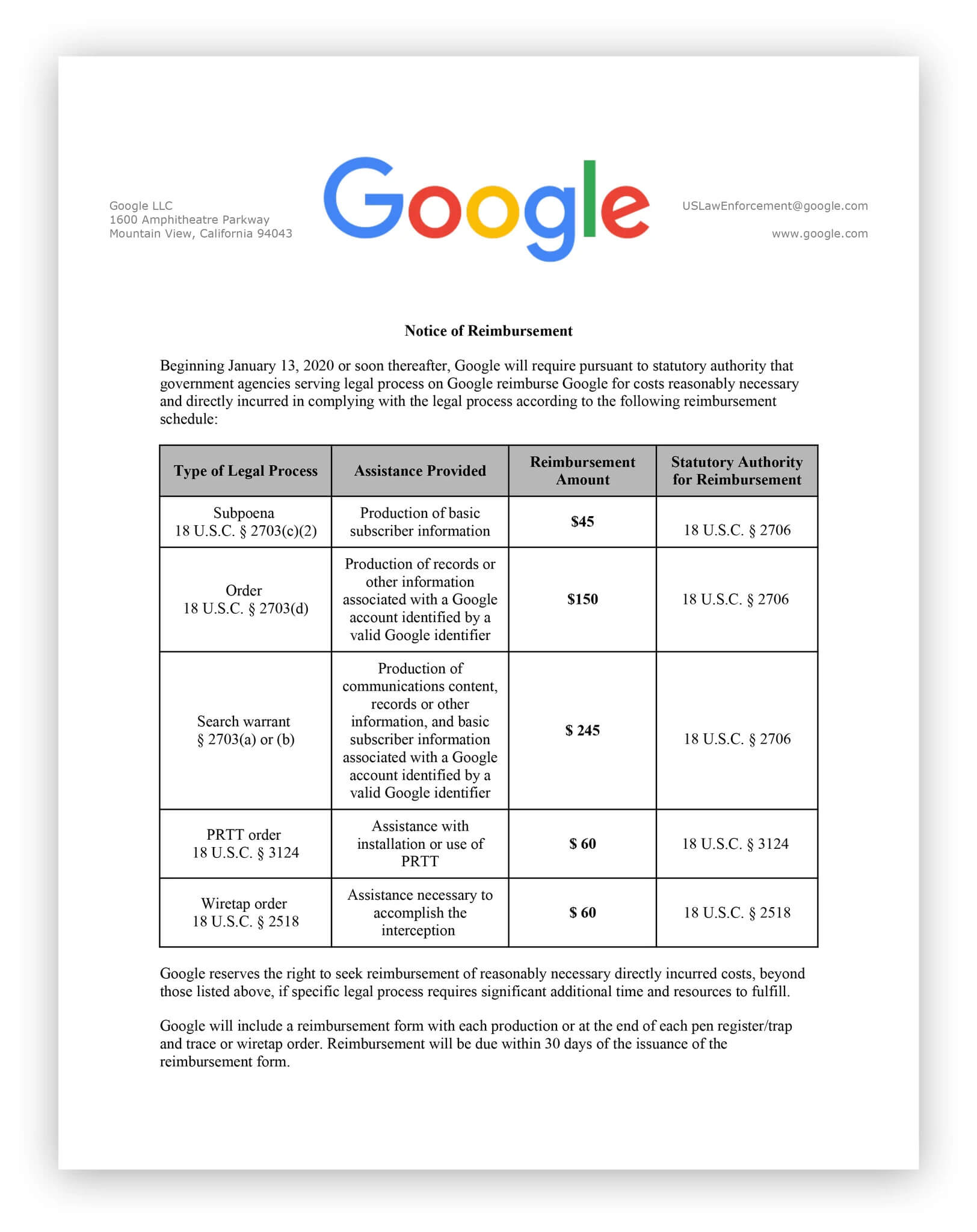In a nutshell: Google receives an ever-increasing number of legal requests for user data and has decided to charge law enforcement and other government agencies for its compliance with a notice stating the type of legal process, the assistance provided, amount to be reimbursed, and the corresponding statutory authority.
Google holds vast amounts of information on billions of users and subsequently has to comply with law enforcement and government agencies who routinely seek this data as outlined in the company's Transparency Report.
According to the New York Times, the search giant notified law enforcement officials about its plan to seek reimbursements for several types of legal processes involving Google's assistance.

Google is allowed to charge such fees from the government under Federal law, and a company's spokesperson said that the reimbursed amount would help cover some of the costs of complying with these legal requests, whose frequency and complexity have increased over the years. The publication noted that Google received over 75,000 such requests in the first half of 2019, a third of which came from the US.
The new fees could also put a curb on these legal demands. "The actual costs of doing wiretaps and responding to search warrants is high, and when you pass those costs on to the government, it deters from excessive surveillance," said Al Gidari, Google's legal representative in the past and now the consulting privacy director at Stanford's Center for Internet and Society.
It remains to be seen if Google's decision inclines other tech companies, who've reportedly been providing user data for free, to charge for such legal requests.
